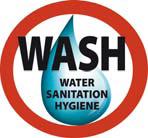Health
UN affirms the right to safe and clean drinking water
Posted on 02 Aug, 2010 02:56 PMA remarkable piece of water history should have been headline news everywhere this week.
Deaths due to water pollution
Posted on 02 Aug, 2010 02:38 PMDeaths due to water pollution occur mainly as a consequence of drinking of contaminated water. The common diseases caused by consumption of contaminated water are Cholera, Viral Hepatitis, Enteric Fever (Typhoid) and Acute Diarrhoeal Diseases (ADD).
The number of deaths reported State-wise on account of Cholera, Viral Hepatitis, Enteric Fever (Typhoid) and Acute Diarrhoeal Diseases (ADD) for the years 2007, 2008 and 2009 are given in Annexure – I-III.
India WASH forum e-newsletter - Update 13 July 2010
Posted on 02 Aug, 2010 11:56 AMWe see this newsletter as a platform for independent credible voice in the water and sanitation sector. Our emphasis is on bringing together critical news and information with analysis. In this issue we share news and analysis on topical issues and developments.
The Department of Drinking Water and Sanitation(DDWS) has simultaneously invited inputs to Discussion Papers on Drinking Water and Sanitation, circulated on Solution Exchange. Inputs given by India WASH Forum, on this, is enclosed in this Update. We have pointed out the missing elements of sanitation improvement strategy that include, criticality of providing water as an inseparable component to household sanitation, the tendency to see behavior change as a lifestyle issue and not linked to the hardware components, peoples livelihoods and living conditions. Suggestions for what needs to be done to strengthen the implementation mechanism of the flagship sanitation programme(TSC) and partnerships.
Piramal prize worth Rs 10,00,000 for innovations in healthcare given by IIM -A and Piramal Foundation
Posted on 02 Jul, 2010 03:53 PMCentre for Innovation Incubation and Entrepreneurship at IIM Ahmedabad and Piramal Foundation announce “Piramal Prize 2010” - to enable bold entrepreneurial ideas with potential to reduce the burden of disease across India. The Prize is an initiative to solve the health crisis by encouraging innovative ideas in th
A daavat in the time of PPR : The mutton bearing lands of the nation are in trouble
Posted on 12 Jun, 2010 09:54 AMThe mutton bearing lands of the nation are in trouble.
Guest Post by: Kurush Canteenwala
It is the week after Holi and we are sitting in Netsinh, 8 kilometers from Ramgadh, 65 kilometres from Jaisalmer City, in Jaisalmer District. Derawar Singh is throwing a daavat for the new tractor that he has purchased, and bakra has been cut for the occasion. Netsinh has a population of 250 families, all of whom are pashupalans, ‘animal caretakers’ and they have been in this location for at least 12 generations. One Net Singh, a common ancestor to most of the village, settled here. Amidst the half day long festivities, the conversation revolves around the growing evidence that they are in the midst of both, an ‘akaal’ and a deadly outbreak of disease. The numbers of bhed-bakri that are dropping dead has not been seen by the elders amongst them in 30 years.
Safe drinking water for all using a portable low cost solar disinfection unit - A research paper
Posted on 07 Jun, 2010 02:23 PMThis paper by A Jagadeesh of RMK Engineering College, describes the design and testing of a portable, low-cost, and low maintenance solar disinfection unit, that can provide potable water. This system was tested with bore water, well as well as with waste water. In 5 hours, the unit eradicated 99.99% of the bacteria contained in the water samples.
This unit can provide about 6 liters of pure drinking water and larger units can be fabricated for providing safe drinking water at a community level.
Community initiative for efficient management of rural water supply in Assam
Posted on 06 Jun, 2010 10:18 PMDrinking Water Supply in rural areas of Assam ( India ) is managed by the Public Health Engineering Department (PHED), Government of Assam and the challenge is indeed enormous and achieving the targets requires well planned and strongly determined strategies and approach. Government has already formulated the necessary strategy to ensure sustained supply of safe drinking water in rural areas. However for achieving the desired end results from the Government initiatives, the community needs to be mobilized to own and sustain these programmes and to become an active partner in their implementation. For such a participatory demand driven approach, necessary awareness generation amongst the Community to realize the need for “total water security” and its impact on reduction of water borne diseases, is highly warranted.
International Conference on Water, Plumbing Sanitation & Health : Issues & Challenges, Bangalore University, Bangalore
Posted on 30 Apr, 2010 11:27 PMThemes: Water Plumbing Sanitation & Health-Issues & Challenges
Extent of social inclusion in the Government of Rajasthan's Integrated Fluorosis Mitigation Programme (RIFMP)
Posted on 20 Mar, 2010 04:36 AMThis paper presents and explores the efforts of the Government of Rajasthan, in tackling the problem of fluorosis and in ensuring that the Rajasthan Integrated Fluorosis Mitigation Programme (RIFMP) impacts all segments of the target population, including dalits.
Rajasthan has almost half of the total villages, with the highest levels of fluoride in the country. After the success of the UNICEF pilot project using Domestic De-fluoridation Units (DDUs) at household levels, the Government of Rajasthan in 2005 adopted this technology and implemented the Rajasthan Integrated Fluorosis Mitigation Programme (RIFMP), across the state.
Health and hygiene expert's training, CDD, Karnataka
Posted on 22 Feb, 2010 06:03 PM
The Consortium for DEWATS Dissemination (CDD) Society is a not-for-profit organisation working in the field of decentralised basic need services across India. Decentralised solutions for wastewater treatment, water and energy supply, solid waste management and urban sanitation planning are successfully promoted over the last ten years.






